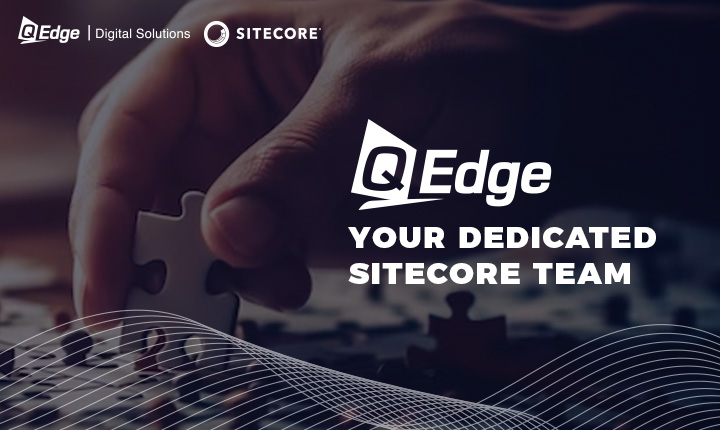It can be intimidating to choose a content management system since it can feel like you're navigating a dangerous jungle full of predatory costs, rigid frameworks, and ineffective workflows. But with an experienced CMS explorer by your side, you can safely navigate this environment and find the rich trove that lies ahead: a customized CMS oasis catered to your unique needs. You can find the perfect environment for your website to thrive by asking the appropriate questions, carefully weighing your options, and relying on experience. Follow these 5 steps for selecting and assessing CMS options to find the best fit.
Identify Your Primary CMS Requirements
Start by outlining your core CMS needs based on your website goals, audience, and capabilities required. Key factors to consider include:
- Content Types - Will your CMS need to manage mostly text? Multimedia like images and videos? Different data types?
- Content Sources - Where will content come from? Just in-house creators or external contributors too?
- Traffic Volume - What is your current and projected website traffic? More traffic requires more CMS scalability.
- Performance Needs - Are page load speed and uptime critical? Or is your site more content-focused?
- Security - What level of security and permissions do you need?
- Integration Needs - What other systems like e-commerce or analytics tools need to integrate?
- User Experience - Should content editors with minimal technical skills be able to use it easily?
Focus on the 3-5 most important requirements so you can narrow down the CMS options.

Research Your Shortlist of CMS Solutions
With your top needs defined, research CMS solutions that seem best suited. For each, look into:
- Core CMS Features - Do the built-in features match your needs? See how they handle critical functions like content workflows, permissions, templates, etc.
- Add-Ons & Integrations - What extensions or plugins are available? Can you easily integrate third-party tools?
- Ease of Use - How intuitive is the admin interface for content managers? Will it require extensive training?
- Scalability - Can the system easily manage your projected traffic and content volume?
- Security - Does the CMS provide adequate security protections and permissions?
- Support & Documentation - Is sufficient technical support and documentation available?
- Cost - What is the licensing model? One-time vs. recurring fees? What’s included?
- Popularity - How widely used is the platform? More usage means a more mature and stable product.
Create a comparison chart to visualize how each CMS stacks up.
Evaluate Leading Candidate CMS Solutions
Narrow your shortlist down to the top 2-3 CMS contenders that seem the best fit. Take a closer look by:
- Reading Reviews - Look for credible CMS reviews highlighting pros, cons, and real user experiences.
- Examining Demo Sites - Test drive demo sites to experiment with editing interfaces and frontend delivery.
- Requesting Custom Demos - Ask vendors for personalized demos with your specific use cases in mind.
- Comparing Sample Templates - Review code samples for templates, components, and modules.
- Assessing Sample Implementations - Ask vendors to showcase live examples of sites similar to yours built with their CMS.
- Consulting Experts - Get insights from developers, designers, and digital agencies experienced with the CMS options.
Pay close attention to how intuitive and flexible each system seems for your needs.

Run Proof of Concept Tests
Conduct small proof of concept tests for the top CMS solutions still under consideration to further evaluate fit.
- Build Mini Sites - Create simple test sites with key templates and functionalities you'll require.
- Populate Sample Content - Add enough representative content to test content entry workflows.
- Involve Team Members - Have actual users like content editors test using the CMS.
- Perform Key Integration - Set up a small-scale test of a crucial integration like your e-commerce platform.
- Load Test at Scale - Stress test with simulated traffic to assess performance.
- Security Penetration Testing - Hire experts to evaluate vulnerabilities.
These tests will reveal how smooth your real experience working with the CMS may be. Identify any sticking points or limitations.
Select Your New CMS
With thorough research and testing complete, it's time to make your CMS selection by comparing:
- How well each platform aligns with your defined requirements
- Any integration or customization challenges
- Pricing and licensing models
- Overall ease of use and flexibility
Look for the CMS that ticks all your critical boxes while providing room to grow. Favor more user-friendly, intuitive systems to get started on the right foot.
Start Your Implementation Planning
Once you've selected your new CMS, the real work begins - planning your implementation and launch! Key steps include:
- Configuring hosting infrastructure like servers, DNS, CDNs, etc.
- Installing and setting up the CMS, plugins, integrations
- Creating website architecture, taxonomies, templates
- Building out preliminary site content
- Establishing editor roles and permissions
- Creating employee CMS training programs
- Importing content from old systems
- Extensive testing for errors, speed, security
- Developing site launch plans and schedules
Of course, partnering with experienced developers and consultants can expedite and streamline the entire CMS selection and launch process.
About QEdge
You'll have the skills and knowledge to take your website from good to exceptional by understanding every aspect of Sitecore. Sitecore is an effective CMS for building amazing online experiences because of its extensive capabilities, flexibility, and scalability. Sitecore China improves your website and effectively engages your users, embraces the promise of Sitecore, puts best practices into practice, and takes advantage of the multitude of tools at your disposal. You can excel in the digital sphere and acquire a competitive edge in the online environment by using Sitecore as your basis.

As an indispensable partner and gold-medal implementation service provider of Sitecore in China, QEdge has more than 15 years of Sitecore full-version project implementation, operation, and maintenance experience since Sitecore Version 5.0 in 2009. The company has a Sitecore implementation team of more than 40 experts, over 90% of whom are qualified for Sitecore certification.
To date, we have provided Sitecore services to more than 50 large and medium-sized customers worldwide. With robust experience in Sitecore deployment, we have succeeded in implementing Sitecore localization projects for Cochlear, Shangri-La, Kepple Land, and other multinational enterprises. If you aren't ready, don't worry; readiness is something you can grow into. The first step is determining where you are and then planning to get where you want to be. In future posts, I'll talk about what to include in your Sitecore implementation strategy. Stay tuned!
Conclusion
The platform that is the best fit will become clear after careful consideration prompted by your CMS requirements. This CMS will serve as the foundation of your digital endeavors, enabling you to empower the world with your vision. Keep your composure throughout the CMS assessment process, and allow evidence and experience, not hype and conjecture, to guide you to the solutions that are best for your organization. The goal in front of you holds the secret to engaging your audiences in fresh and potent ways.
To learn more details about Sitecore, feel free to Contact us Today!
Or you can take a look at our QEdge LinkedIn page.
The following are some related articles about CMS, if you are interested, you can click to see them.





